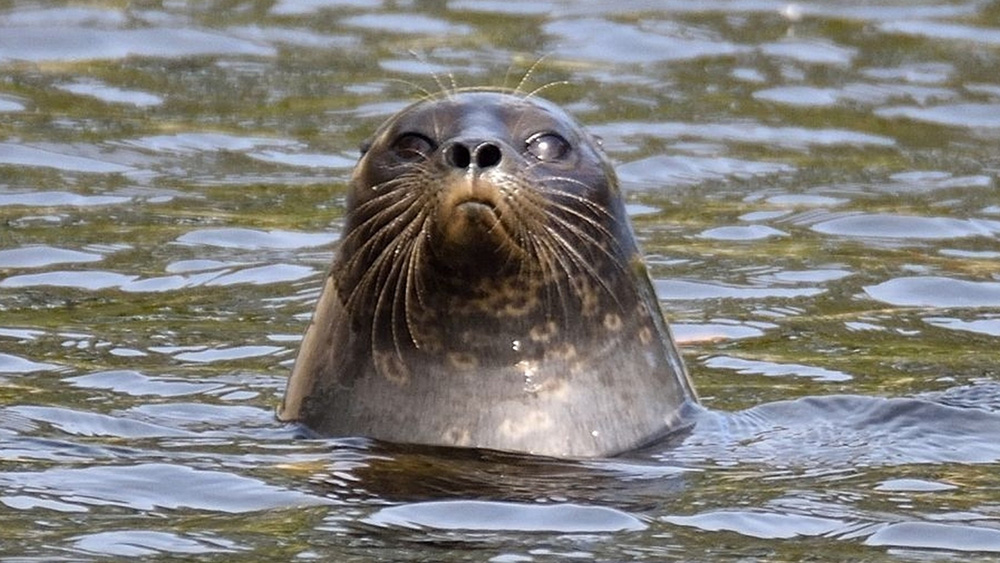
Project details
| Reference (ArCHe-Doctoral candidate no.) | DC 6 |
| Title of the project | Geographical and seasonal patterns in marine mammal exploitation – ethnographic insights into prehistoric practices |
| Recruiting institution and place of work | University of Latvia |
| Expected start date | August 2024 |
| Length of the project | 36 months |
| Salary | EUR 2576 per month (gross salary, not including employer's social security contribution) |
Project description
Objectives
The doctoral candidate will pursue a novel approach in the study of prehistoric marine mammal exploitation, exploring the ways in which the life-cycles, behaviour and physiology of marine mammals (incl. seals, porpoises, dolphins, whales), along with the characteristics of coastal and marine environments and the technologies used by human communities have influenced catching methods and seasonal cycles in marine mammal hunting.
Archaeologically recovered remains will be interpreted through a biologically informed study of ethnographic accounts that deal with traditional marine mammal hunting, in order to further our understanding of the relationships linking particular mammal taxa, landscapes and seasonal conditions, and particular catching methods.
The study will encompass the diversity of prehistoric marine mammal exploitation across Europe, and will span life sciences (including biology and bioarchaeology with archaeozoology), archaeology and ethnography, forging new conceptual links between the study of human-animal relationships in prehistory, traditional lifeways of the recent past and present day, and concerns for the future of marine and coastal habitats and species.
Expected results
The project will gather and analyse archaeological data from the Baltic Sea coast and several other (contrasting) coastal areas of Europe:
- data and previous analytical results on archaeologically recovered faunal assemblages of marine mammals (additional taxonomic/ anatomical identification or isotopic study is not envisaged in the project)
- remains of prehistoric marine mammal hunting gear
- palaeoenvironmental and subfossil fish faunal data characterizing the aquatic habitats
- human bioarchaeological data obtained in previous studies that reflects subsistence on marine food resources.
For interpreting this data, the project will identify and study major ethnographic sources on traditional marine mammal hunting in Europe and beyond that provide detailed evidence on the human exploitation of the archaeologically represented animal taxa. Together, this will permit the first assessment of major biological, environmental and technological parameters relevant to marine mammal exploitation in prehistory on a European scale, identifying geographical and seasonal variation.
Building up an advanced capability for integrating and applying life science (biology, bioarchaeology), social science (ethnography) and humanities (archaeology) research data, the PhD will be equipped for a variety of potential academic/non-academic career paths involving interdisciplinary contributions to sustainable development.
Academic secondments
CNRS, France. Supervisor: Catherine Dupont, 2 months, for consultation on marine mammal exploitation at the Atlantic coast, study of ethnographic sources.
Tallinn University, Estonia. Supervisor: Lembi Lõugas, 4 months, to study faunal remains
Non-academic secondments
Riga Stradiņš University, Latvia. Supervisors: Anda Rožukalne, Marta Herca, 1 month. Training in communication of research results through production of video on project-related topic.
Supervisors
- Main supervisor: Valdis Bērziņš, University of Latvia
- Co-supervisor: Catherine Dupont, CNRS, France and Lembi Lõugas, Tallinn University, Estonia
Eligibility criteria
The recruitment process for all Doctoral candidates in the HORIZON-MSCA-2022-DN ArCHe follows a common recruitment strategy, which is based on the European Commission’s Code of Conduct of Recruitment
MSCA-eligibility criteria
- MSCA Mobility Rule: researchers must not have resided or carried out their main activity (work, studies, etc.) in the country of the recruiting beneficiary for more than 12 months in the 36 months immediately before their date of recruitment
- All researchers recruited in a DN must be doctoral candidates (i.e. not already in possession of a doctoral degree at the date of the recruitment)
Necessary local eligibility criteria (specific for the host institution/beneficiary)
Academic recognition of master's degree.
Enrolment in local PhD-programme
University of Latvia: Doctoral Study Programme in History and Archaeology or other doctoral study programme offered by the university.
Appropriate academic knowledge and skills for position DC6
Knowledge of marine ecology, mammal biology, marine mammals. Experience in archaeology or other humanities fields will also be useful. Crucially important is a readiness to cross disciplinary boundaries and combine data from the natural sciences and humanities.
Application deadline:
April 22nd 2024
How to apply:
You apply for the position via the website of University of Latvia
Contact for the ArCHe PhD position DC6
Dr Valdis Bērziņš
Email: valdis.berzins@lu.lv
Telephone: +37 1 26481823

